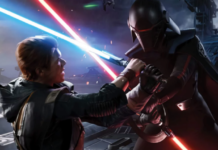Are You Good Enough to Rule the
Star Sonata Galaxy?
Two-dimensional space MMO
released Oct. 16
Sure, you can rule the galaxy when
the “galaxy” is a 64-bit chunk of computer logic, but how are you against
thousands of simultaneous opponents, all striving to put their fanny in the same
galactic throne that so righteously belongs to you?
Galactic megalomaniacs rejoice: your chance to rule the universe is here at
last. Star Sonata (www.starsonata.com)
officially launches Oct. 16, after three years of development and a smash
success beta test.
Star Sonata is a real-time, 2D massively multiplayer online game (MMOG) that
separates itself from other MMOGs thanks to several innovative game play
features. First and foremost is the fact that you can actually win the game.
“You can dominate the universe by becoming crowned as emperor,” said Adam
Miller, lead developer at Star Sonata LLC. “It’s tremendously difficult, and
requires the support of a loyal team to fend off the rest of the player
universe.”
Star Sonata also lets the player automate redundant tasks, such as resource
development, trading, or traveling across the vast universe.
“In many real-time strategy resource management games as soon as you grow a
little bit, the game devolves into a clickfest,” Miller said. “In Star Sonata,
you control your spaceship and your direct environment, which makes you rely on
strategic decisions to build your empire.
Those same stations, and other structures such as colonies, are another key
differentiator for Star Sonata. Once a player builds a space station, for
example, other players can dock and start trading, giving each station a unique
micro-economy based solely on player-driven supply and demand. As stations and
colonies grow, they become pivotal strategic elements in winning the game:
defend them, capture them, destroy them or just work with them.
“We removed or automated all the things that are boring,” Miller said. “Why sit
there and mine when you can create slave ships that do it?”
Star Sonata is a free download that requires Windows 98 or higher, a 3-D Card
with 8MB video memory or higher, DirectX 8 or higher and an Internet connection.
The game costs $9.95 a month, but new users can play free until their character
reaches level 20.
It’s no surprise Star Sonata showcases such a rich feature-set: the developers’
hail from a Who’s Who of higher learning institutions like Yale, Berkeley and
Carnegie Mellon.
Adam Miller, Yale grad and Star Sonata’s lead developer, worked for Macintosh
game house Delta Tao, and helped pioneer internet gaming for the Mac platform
when he helped port Kali software from the PC.
Sherman Mui worked for Aureal A3D API team after graduating from U.C. Berkeley,
developing a 3D audio toolkit for game developers.
Jeff Landauer, a Carnegie Mellon alum, worked for Cyclone Studios, game
publisher 3DO, and Konami Computer Entertainment America. His game credits
include Captain Quazar and Uprising.
The three creators, along with programmer Matt Darling and artists Loren Schmidt
and Avi Leca, have built a game that takes a familiar genre — spaceships,
pirates, trading, mining, etc. — and implemented that genre as a rich medium
within which users create their own universe. Instead of focusing on quests and
other extend soloing activities, the game’s goal consists of establishing
control of the universe, an activity that pits player against player.
“Struggling against a computer opponent is interesting for a while, but for a
game to really maintain interest in the long run it must offer direct
player-versus-player competition,’ Miller said.
Players begin the game as a newbie, with a sparkly new, albeit simple, starship
that lets them explore the constantly developing galaxy. Because other players
are building structures, creating colonies, and affecting economic
supply-and-demand, every nook of the galaxy is different each time a player
visits it.
As players advance in skill, they have access to new ship configurations, can
build stations, start colonies, and join teams as they begin the quest to rule
the galaxy. Ruling the galaxy, however, is harder than it sounds, because all
players are notified when someone is close to that goal.
“When someone attempts to ascend the throne, it galvanizes all the medium- and
high-level players in the game,” Miller said. “It’s a process that takes days
and requires a lot of teamwork, and that’s just for the declaring team. The rest
of the universe allies against them, forming hunting parties, defensive
bulwarks, and even armies. We’ve seen in our beta testing how excited the users
get in this period, and the stories they later tell about it. It’s a better
narrative than we could construct ourselves.”
When a player achieves the impossible and seizes control of the galaxy, the
universe “resets” and everything returns to a beginning state. Players keep
their ships, their equipment and their characters, but all colonies, stations
and other structures disappear as the struggle for empire begins anew.







